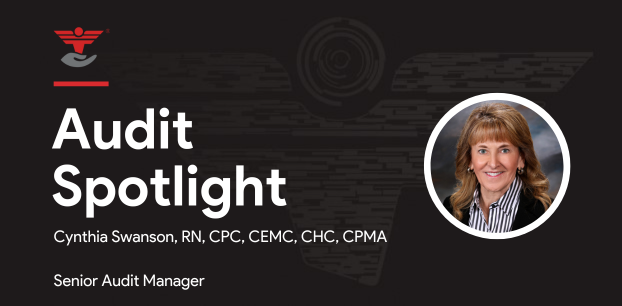
High-Cost Cancer/Other Drugs and the Mystery of Hospital Markups
Background
ClaimDOC’s comprehensive line-by-line review of claims uncovers errors that basic claim repricing and auto-adjudication does not catch, leading to greater savings for health plans and its plan members. Our audit team analyzes all types of healthcare claims for a variety of potential concerns, including excessive usual and customary charges, duplication of claims, incorrect coding, unbundling of services and many others. Our claims review is not intended to impact care decisions or medical practice.
In this Claims Audit Spotlight, we focus on high-cost cancer/other drugs and their related charges reported/billed by hospitals. High-cost cancer/other drug prices and their frequency of use are a growing trend in cancer care and are affecting patient care and our health system.
As healthcare costs continue to climb an upward slope, an escalated need exists for closer analysis of healthcare claims to identify egregious charges, improper medical coding, and billing errors and associated improper claim payments.
Hospital Outpatient Services — High-Cost Cancer/Other Drugs and Related Charges
Claim Example One
A 41-year-old female patient received outpatient chemotherapy services for the treatment of right breast cancer at a Georgia hospital on two dates of service.
The hospital reported/billed HCPCS code J9317 (Trodelvy® — 546 units) and related charge of $85,176.00. The reported hospital cost for the drug J9317 (these units) — $10,724.08.
The hospital also reported/billed HCPCS code J2506 (Pegfilgrastim — 24 units) — charge of $71,628.00. The reported hospital cost for J2506 (these units) — $9,018.32.
Total hospital bill — $176,415.00 and total reported hospital cost — $22,317.33
ClaimDOC pricing — $28,479.17 based on Medicare with markup.
Plan Savings: $147,935.83
Percentage of Savings: 84%
A common treatment cycle is 21 days with the duration being determined by the healthcare provider and patient.
Claim Example Two
A 62-year-old female patient received outpatient chemotherapy services for the treatment of right breast cancer at a Georgia hospital on two dates of service.
The hospital reported/billed HCPCS code J9354 (Kadcyla — 570 units) and related charge of $125,400.00. The reported hospital cost for J9354 (these units) — $14,999.01.
Total hospital bill — $132,015.00 and total reported hospital cost — $16,599.90
ClaimDOC pricing — $29,852.62 based on Medicare with markup.
Plan Savings: $102,162.38
Percentage of Savings: 77%
A common treatment schedule for Kadcyla is 14 cycles in early breast cancer. The above claim example is the hospital’s charges for 2 treatment cycles.
The Takeaway
Hospitals across the country bill dramatically high charges for cancer/other drugs. Is there a clear trigger for skyrocketing cancer/other drug prices? Is there any reasonable logic for hospital’s marking up drugs 10-20 times of what the actual drug cost is to the hospital? Is there a valuable moral scale that applies to cancer/other drugs to make products accessible, available and affordable?
Hospital bills can be staggering. Hospitals can charge what they want and do. Federal rules requiring price disclosure by hospitals appear to have improved transparency between facilities, which is important for any market-based healthcare system. There remains several unanswered questions. Are hospitals making any adjustments to their fee structure/charges? With the spotlight on the hospital’s volume of numbers published, is there context in the data to take away? Is the information really assisting consumers to “shop for services” and does it work to provide an estimate of expected costs?
Everyone can agree healthcare is a complicated industry. The why and how charges can vary among hospitals include numerous considerations, such as staffing costs, the type and range of services provided, new technology, frequency of services, levels of care, capitals expenses, and others. More expensive care does not necessarily equate to better care.
A substantial markup by the hospital for cancer/other drugs were identified on the above hospital outpatient claims. Egregious charges and the improper reporting of services, coding/billing errors can complicate matters for members to understand their bills and payments, impact the collection of patient balances, build a reputation of practitioners charging high fees, create burdens for patients having no insurance and a host of others.
Given the volume of healthcare claims that are reported/billed each day by providers/suppliers, medical bill errors and egregious charges are alarmingly common and lead to abuse, waste and fraud.
When an individual receives a healthcare bill that appears questionable/inappropriate, an inquiry to the provider and/or health plan should be made to obtain an explanation of the service(s) and corresponding charges.
Our goal at ClaimDOC is to use benchmark charges and costs nationally to negotiate fair and ethical payments. Our high-quality and expert review of claims identifies and prevents improper medical claim payments and maximizes long-term cost savings opportunities. Employers turn to us seeking to establish fair reimbursement rates for their plans allowing them to save money and provide richer benefits to their employees — a win-win for everyone.